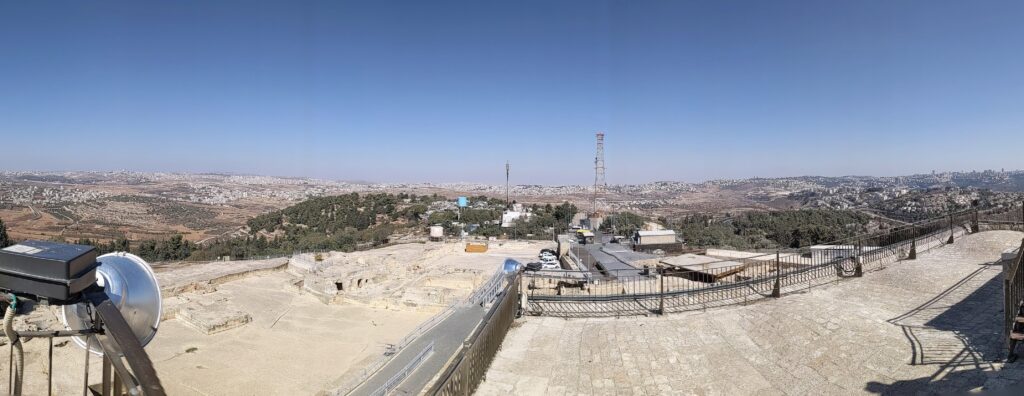
The Book of Joshua details the Israelites conquest and inheritance of the Promised Land. It begins on the shores of the Jordan River, and in chapter three, Joshua has the preists lead the Israelites across the Jordan, with a miracle that echoes the crossing of the Red Sea, and Israelites cross the Jordan on dry land. If you were to see the Jordan river today, you’d probably think that isn’t that impressive of a miracle.
Rest assured, before modern civilization’s needs for water started pumping water out of the Jordan, the river was much wider than the little creek it is today.
The Jordan is a site for many things throughout Scripture: Joshua and the Israelites cross it as they enter into the land God promised, at the same time the manna that God provided them with for 40 years ends. Elijah crosses the Jordan to be carried away into heaven, and Elisha, his successor, returns with a double portion of Elijah’s Spirit. Naaman, a foreign military officer, develops leprosy, and seeks out Elisha’s help. Elisha tells him to dip himself in the Jordan River to cleanse himself of leprosy. Naaman almost refuses because the Jordan river is so small and dirty compared to the rivers back home, I guess some things never change. Perhaps most famously, Jesus was baptized in the Jordan by John the Baptist, signaling the start of his ministry.
Coming up from the Jordan, Joshua knew the best city to attack first would be Jericho. Jericho sits at a strategic point near three of the main routes up into the hill country, which is otherwise marked by a nearly 1000 foot tall cliff that sits just west of Jericho. These routes make travel into the hill country possible, as well as bring water and soil down to the otherwise barren Jordan River valley, turning Jericho into an oasis city.
These same features have secured Jericho as a strategic settlement for nearly 10,000 years, making it the oldest known city in the world. The ancient site sits upon layer after layer of settlement and destruction, making it a fascinating site for archaeologists and historians regardless of religious beliefs.
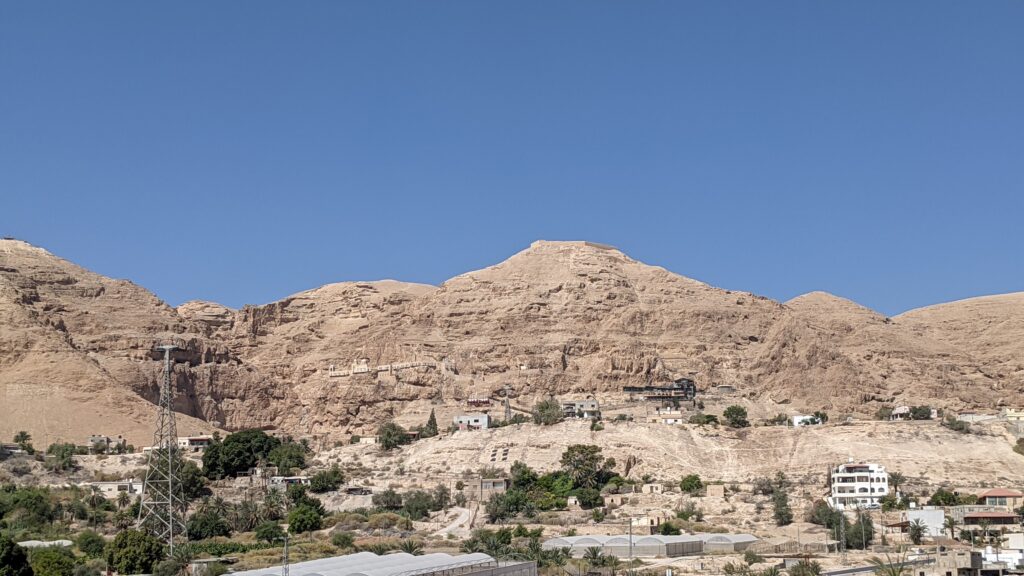
The Cliffs Outside Jericho 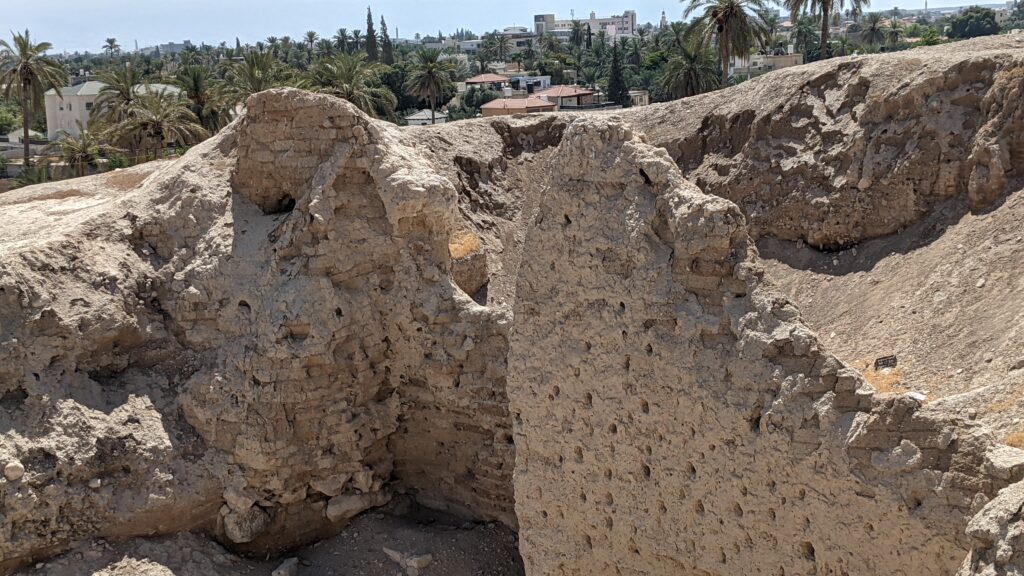
Some of the Old Jericho City Walls – Probably not the Ones From the Time of Joshua 
A 10,000 Year Old Tower 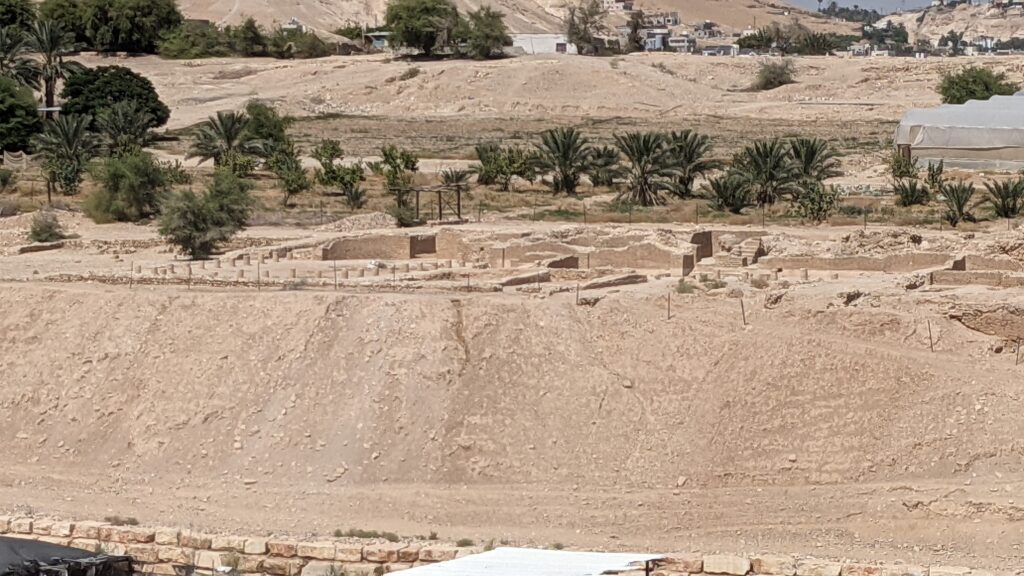
Herod’s Palace in Jericho 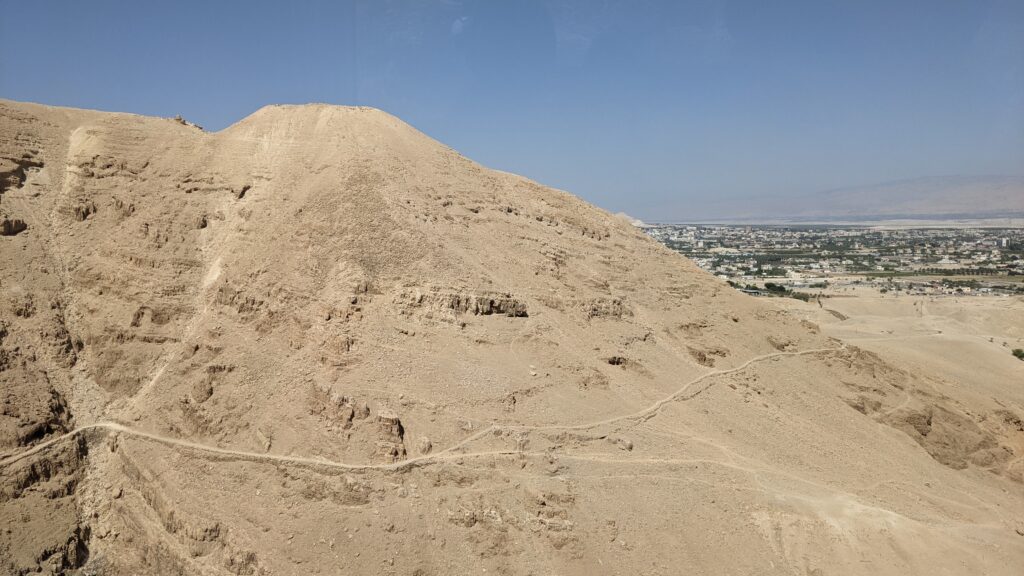
Entering the Hill Country from Jericho
Joshua and the Israelites conqured Jericho by faith. God told them to walk around the city once a day for six days, and then seven times on the seventh day. After standing in the 100+ F heat that is a near constant in the Jordan river valley, that would not have been fun. It may have been easier to try and take the city by force. After all that walking God told them to shout, and the walls would fall down and they did.
Joshua cursed the city of Jericho upon destroying it, leaving it largely abandoned for a few hundred years. However, during the reign of King Ahab, Jericho was rebuilt. By the time of Jesus, it lay along the main route of travel to Jerusalem for Jews who wished to avoid Samaria. Here Jesus met with and redeemed Zacchaeus, and healed the blind man Bartimaeus.
By Chapter 9 of Joshua, the conquest of the land is well underway. The Israelites have destroyed two other key cities, Bethel and Ai, and word is spreading. The Gibeonites, who live in the Central Benjamin Plateau, make an alliance with Israel, and allow them to gain access to nearly every major road in the region. When the Gibeonites neighbors hear of this, they attack the Gibeonites, and Joshua, honoring the alliance, comes to the rescue, marching all night to reach the battle. When they get their, God sends his aid by raining rocks from the sky (a hailstorm? meteorites?), and allowing Joshua to command the sun.
At that time Joshua spoke to the LORD in the day when the LORD gave the Amorites over to the sons of Israel, and he said in the sight of Israel,
“Sun, stand still at Gibeon and moon, in the Valley of Aijalon.”
And the sun stood still, and the moon stopped, until the nation took vengeance on their enemies.
Is this not written in the Book of Jashar? The sun stopped in the midst of heaven and did not hurry to set for about a whole day. There has been no day like it before or since, when the LORD heeded the voice of a man, for the LORD fought for Israel.
Joshua 12-14
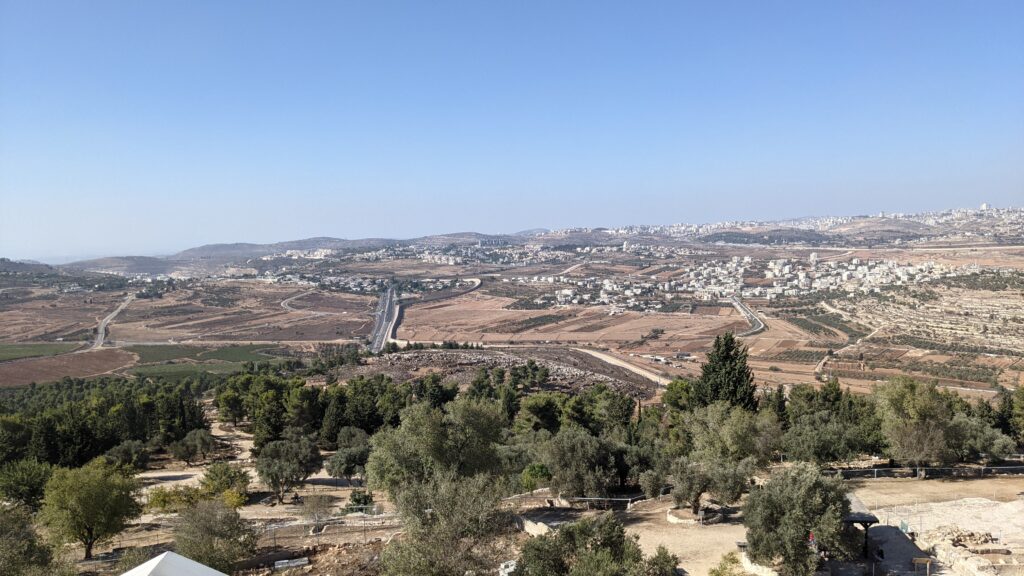
The fact that you can go and see the place where this happed is incredible, and I am so thankful to have had such a good veiw of it. This was just the beginning of the conquest of Joshua, but it brings up an interesting point. All along the way they had to rely on faith in God and lots of hard work, and it paid off immensely. It wasn’t just faith, and it wasn’t just work, it took both. The Israelites had to get their feet wet before the crossed the Jordan on dry ground. They had to march around Jericho a total of 13 times before god tore down the walls, and they had to march all night to a battle where God fought in their place. Following God’s will takes a willing effort to do your best, trusting Him to see it through.

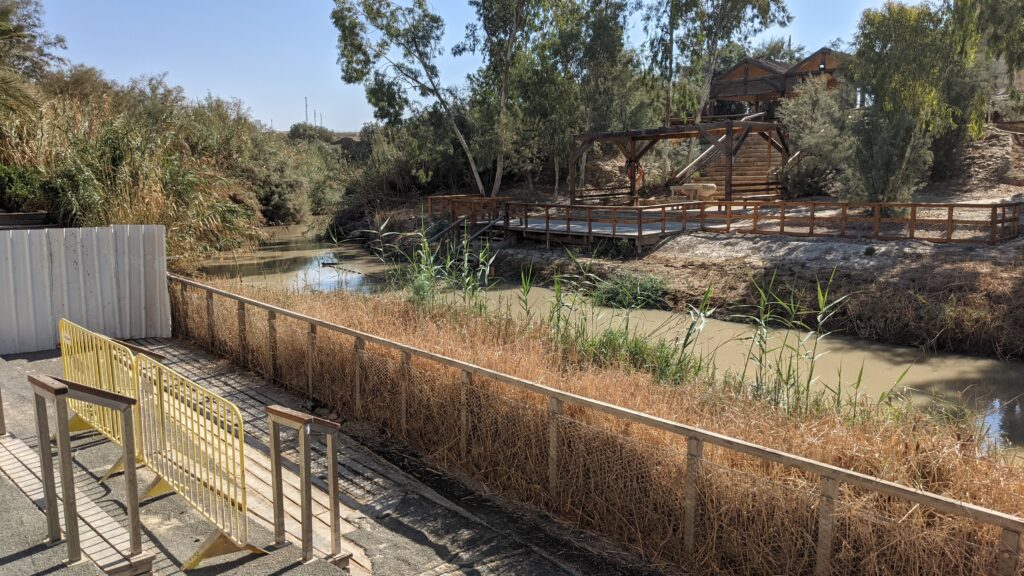
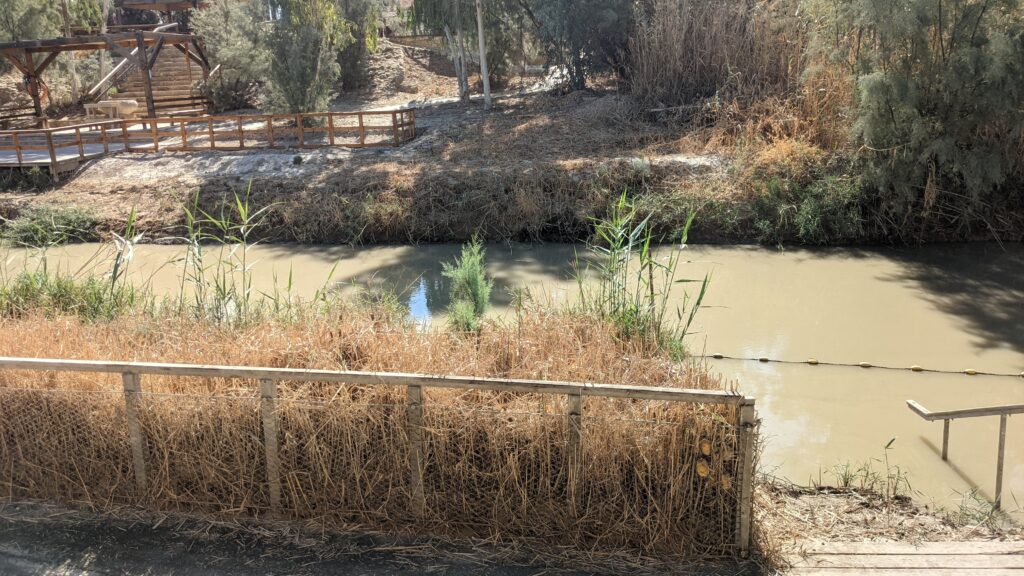
Pingback: The Lowlands: Where Legends are Made – Dalton Williams